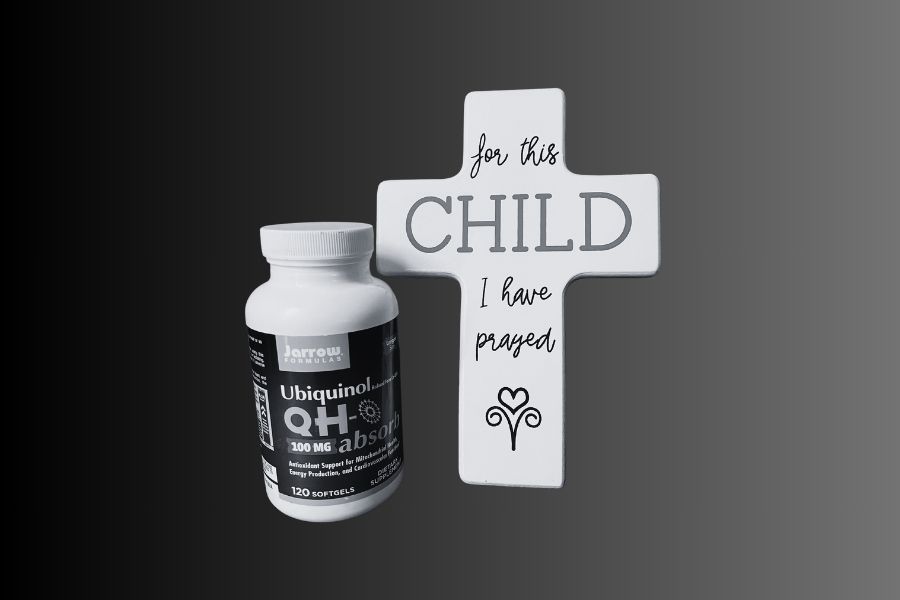I believe in Coenzyme Q10 (CoQ10) because I used it for about 60 days prior to getting pregnant for my third time (my healthy/full-term pregnancy). I believe that it improved my egg quality so that when the sperm did fertilize my egg, it was healthy enough to not end in miscarriage. There was a study that showed that women who received pre-treatment of CoQ10 supplements for 60 days or longer resulted in improved egg health and higher fertilization rates. CoQ10 can also be taken by men. CoQ10 is linked with an increase in sperm quality, including enhanced motility (movement), morphology (shape), and DNA integrity. Link to supplement I used here:https://amzn.to/42MC5ZM
It is recommended to make sure the male’s sperm is tested as well. The sperm and egg quality need to be well to grow a healthy baby.
A 2018 study found that pretreatment with CoQ10 increased ovarian response to stimulation and improved egg and embryo quality in study participants, under age 35, with low ovarian reserve (i.e., the quantity and quality of eggs). In a 2020 study, women treated with assisted reproduction technologies (ART) indicated that those who took CoQ10 supplements realized an increase in pregnancy rates compared with those who took a placebo or received no supplementation.
This was enough evidence for me to add CoQ10 to my diet because there does not seem to be any side effects or risk of taking it but only pros. Consult your physician to make sure you are able to take this supplement. But I did take it and highly recommend it. Make sure it is good quality and find it in the form of ubiquinol which is the active form of CoQ10 and serves as a better antioxidant!
See the picture for the exact brand that I used!
Coenzyme Q10 (CoQ10) is a naturally occurring antioxidant that plays a crucial role in energy production within cells. Some studies suggest that CoQ10 supplementation may have potential benefits for female reproductive health, including egg quality. However, it’s essential to note that the research on this topic is not conclusive, and more studies are needed to establish definitive recommendations.
Here are some points to consider:
- Antioxidant Properties: CoQ10 is an antioxidant that helps neutralize free radicals, which can cause damage to cells, including eggs. By reducing oxidative stress, CoQ10 may contribute to better egg quality.
- Energy Production: CoQ10 is involved in the production of energy within cells. Adequate energy is crucial for the development and maturation of eggs.
- Age-Related Decline: Egg quality tends to decline with age, and some research suggests that CoQ10 levels may also decrease with age. Supplementing with CoQ10 might help counteract age-related declines in both CoQ10 levels and egg quality.
- Research Limitations: While some studies indicate potential benefits, the evidence is not yet robust enough to make definitive recommendations. Moreover, the optimal dosage, duration of supplementation, and its effectiveness for all women, especially those with specific fertility issues, are still areas of ongoing research.
If you are considering CoQ10 supplementation for egg quality, it is advisable to consult with a healthcare professional, particularly a reproductive endocrinologist or fertility specialist. They can provide personalized advice based on your individual health status, fertility concerns, and medical history. And discontinue the use of the supplement as soon as you find out you are pregnant.
It’s crucial to keep in mind that supplements should not be a substitute for a well-balanced diet and a healthy lifestyle, which are fundamental factors in overall reproductive health.
Link to supplement I used here:https://amzn.to/42MC5ZM

